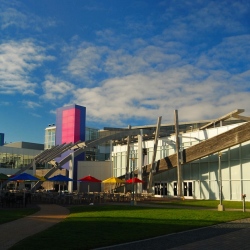
Computers had already conquered chess, when in 1997 IBM’s Deep Blue defeated world champion Garry Kasparov. Go was “the only game left above chess”, as DeepMind’s Demis Hassabis put it before Wednesday’s showdown. AI had scored a victory in one of the most creative and complex games ever devised.
The result shocked many Go aficionados. As recently as two weeks ago, Lee said he was confident of a sweeping victory. AlphaGo’s defeat of a European Go champion in October last year, an achievement many thought was at least a decade away, should have acted as a warning.
AlphaGo’s mastery of Go is so significant because of the near-infinite number of board positions available and the intuition that top human players rely upon to pick between them. Hassabis described Go as “the most elegant game that humans have ever invented”, with “simple rules [that] give rise to endless complexity”.
“There are more possible Go positions than there are atoms in the universe,” he added.
DeepMind’s team built “reinforcement learning” into the programme, meaning the machine played against itself and adjusted its own neural networks based on trial and error. AlphaGo is capable of narrowing down the search space for the next best move from the near-infinite to something more manageable. It can also anticipate long-term results of each move and predict the winner.
The match took place in a quiet room as reporters watched on a projector screen from a separate press area. The game, including commentary, was live-streamed on YouTube.
Ben Lockhart, a 22-year-old who took up Go as a child in New York and who moved to South Korea four years ago to study the game full time, welcomed the unprecedented level of attention brought by the AlphaGo contest. “That no one really knows this game [in the west] has been frustrating for a long time. At least after this more people will have heard of Go,” he said.
Maybe part of the reason that the game has struggled to make inroads in the west, where it has no history, is that it is a less than scintillating spectator activity. The action inches along, with long pauses as players eye the board and contemplate their next move. It isn’t always obvious to viewers unfamiliar with the game who is winning. After a couple of hours of play, most reporters were slouched in their chairs playing with their smartphones.
Lee has four more chances to beat AlphaGo and claim the $1m in prize money. The stress and fatigue affecting the South Korean won’t be a problem for his opponent when they reconvene for game two on Thursday 10 March.
“Historically, Go has been a game of people testing themselves against each other, and themselves. It has been a game of character,” Andrew Okun, president of the American Go Association, who flew to Seoul to watch the showdown. AlphaGo, he added, “doesn’t get tired, doesn’t forget, doesn’t worry”.
